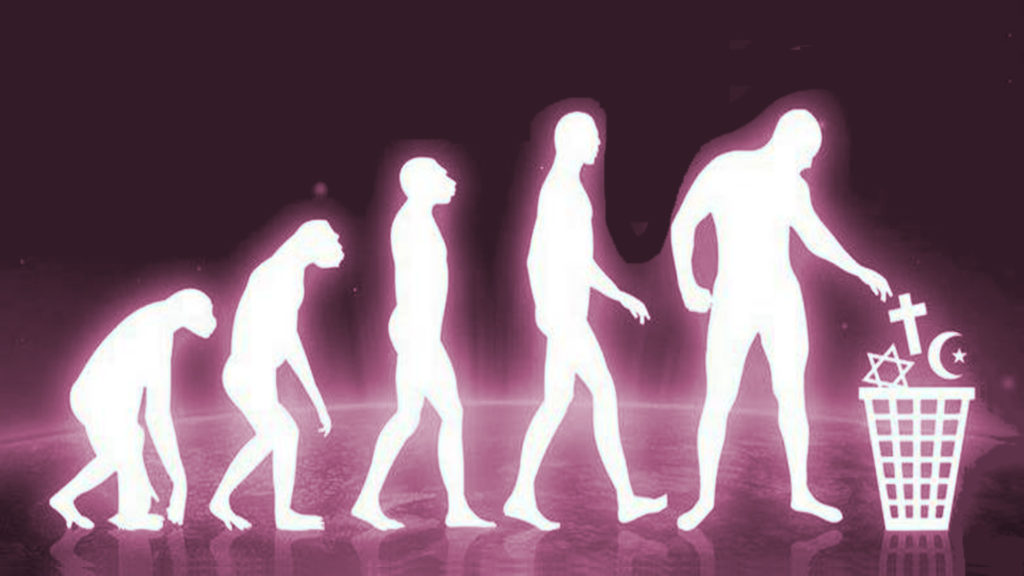Four Aspects of the Antitheism Lifeway:
O02 Antitheism
Opposition to belief in gods or organized religion, often advocating for the rejection or criticism of religious institutions and beliefs.
Antitheism, as a philosophical and ideological stance, represents a group of individuals in the United States who actively oppose the belief in and influence of organized religion and the concept of God. While antitheism is not a formally organized group or religion, it encompasses a broad range of individuals who share a common skepticism or hostility towards religious doctrines and institutions.

Opposition Based on Multiple Criteria
Antitheists often base their opposition on a variety of arguments, including concerns about the historical and contemporary harms caused by religion, the perceived irrationality of religious beliefs, and the idea that organized religion can be used to justify discrimination, violence, and social division. They argue that belief in the divine, especially when institutionalized, can hinder scientific progress, limit personal freedoms, and contribute to societal injustices.
Vocal Proponents of Secularism and Separation of Church and State
Many antitheists are vocal proponents of secularism and the strict separation of church and state. They advocate for the removal of religious influence from public institutions, laws, and policies. In their view, a secular society promotes equal rights, individual freedoms, and rational decision-making, free from religious dogma.
Diverse Opposition to Religious Institutions and Religious Beliefs and Practices
It's important to note that not all antitheists are hostile towards individuals with religious beliefs. Some focus their criticism on religious institutions and ideologies rather than on the individuals who adhere to them. However, more militant or confrontational antitheists engage in debates, social activism, and public discourse to challenge and confront religious beliefs and practices.
The "New Atheist" Movement Fuels Antitheism
Antitheism has gained visibility and prominence in the United States in recent years, in part due to the rise of the "New Atheist" movement, which includes prominent figures like Richard Dawkins, Sam Harris, and Christopher Hitchens. These authors and speakers have published books and engaged in public debates critiquing religion and advocating for secularism.
Summary
In summary, antitheism in the United States represents a diverse group of individuals who actively oppose organized religion, religious beliefs, and the influence of the divine in society. While their motivations and approaches vary, antitheists collectively advocate for secularism, the separation of church and state, and the promotion of rational thinking and personal freedoms, often challenging the role of religion in shaping public policy and social norms.

| TOP TEN BASIC TRADE AREAS | |
| 1 | Seattle-Tacoma, WA |
| 2 | New York, NY |
| 3 | Atlanta, GA |
| 4 | Dallas-Fort Worth, TX |
| 5 | Indianapolis, IN |
| 6 | Houston, TX |
| 7 | Little Rock, AR |
| 8 | New Orleans, LA |
| 9 | San Antonio, TX |
| 10 | Chicago, IL |
